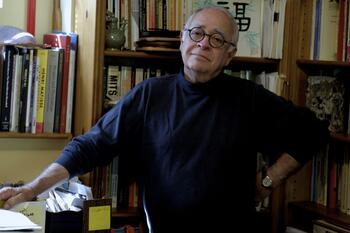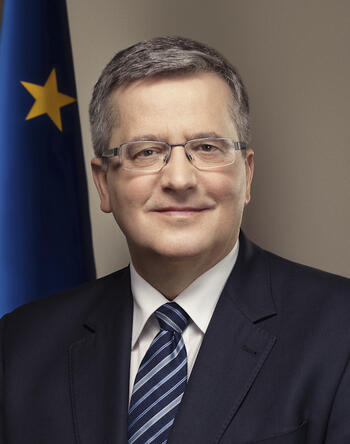Who watches over the party-state? In this talk, Maria Repnikova examines the uneasy partnership between critical journalists and the state in China. More than a passive mouthpiece or a dissident voice, the media in China also plays a critical oversight role, one more frequently associated with liberal democracies than with authoritarian systems. Chinese central officials cautiously endorse media supervision as a feedback mechanism, as journalists carve out space for critical reporting by positioning themselves as aiding the agenda of the central state. By comparing media politics in the Soviet Union, contemporary Russia and China, her talk will highlight the distinctiveness of Chinese journalist-state relations, as well as renewed pressures facing journalists in the Xi era.
[[{"fid":"229579","view_mode":"crop_870xauto","fields":{"format":"crop_870xauto","field_file_image_description[und][0][value]":"","field_file_image_alt_text[und][0][value]":false,"field_file_image_title_text[und][0][value]":false,"field_credit[und][0][value]":"","field_caption[und][0][value]":"","thumbnails":"crop_870xauto","alt":"","title":""},"type":"media","field_deltas":{"7":{"format":"crop_870xauto","field_file_image_description[und][0][value]":"","field_file_image_alt_text[und][0][value]":false,"field_file_image_title_text[und][0][value]":false,"field_credit[und][0][value]":"","field_caption[und][0][value]":"","thumbnails":"crop_870xauto","alt":"","title":""}},"link_text":null,"attributes":{"style":"margin-left: 0px; margin-right: 15px; padding: 0px; float: left; height: 350px; width: 250px;","class":"media-element file-crop-870xauto","data-delta":"7"}}]]Maria Repnikova is a scholar of political communication in illiberal contexts, with a focus on Chinese media politics. She is currently an Assistant Professor of Global Communication and a Director of the Center for Global Information Studies at Georgia State University. Maria's work examines critical journalism, political propaganda, cyber nationalism, and global media branding in China, drawing on comparisons to Russia. Her work appeared in the China Quarterly, New Media & Society, Journal of Contemporary China, as well as in Foreign Affairs and Foreign Policy, amongst other venues. Her book, Media Politics in China: Improvising Power Under Authoritarianism, was just published by Cambridge University Press. Maria was a post-doctoral fellow at the Annenberg School for Communication. Maria holds a PhD in Politics from Oxford University, where she was a Rhodes Scholar.
This event is part of the 2018 Winter Colloquia;
An Expanding Toolkit: The Evolution of Governance in ChinaChina has undergone historic economic, social and cultural transformations since its Opening and Reform. Leading scholars explore expanding repertoires of control that this authoritarian regime – both central and local – are using to manage social fissures, dislocation and demands. What new strategies of governance has the Chinese state devised to manage its increasingly fractious and dynamic society? What novel mechanisms has the state innovated to pre-empt, control and de-escalate contention? China Program’s 2018 Winter Colloquia Series highlights cutting-edge research on contemporary means that various levels of the Chinese state are deploying to manage both current and potential discontent from below.








